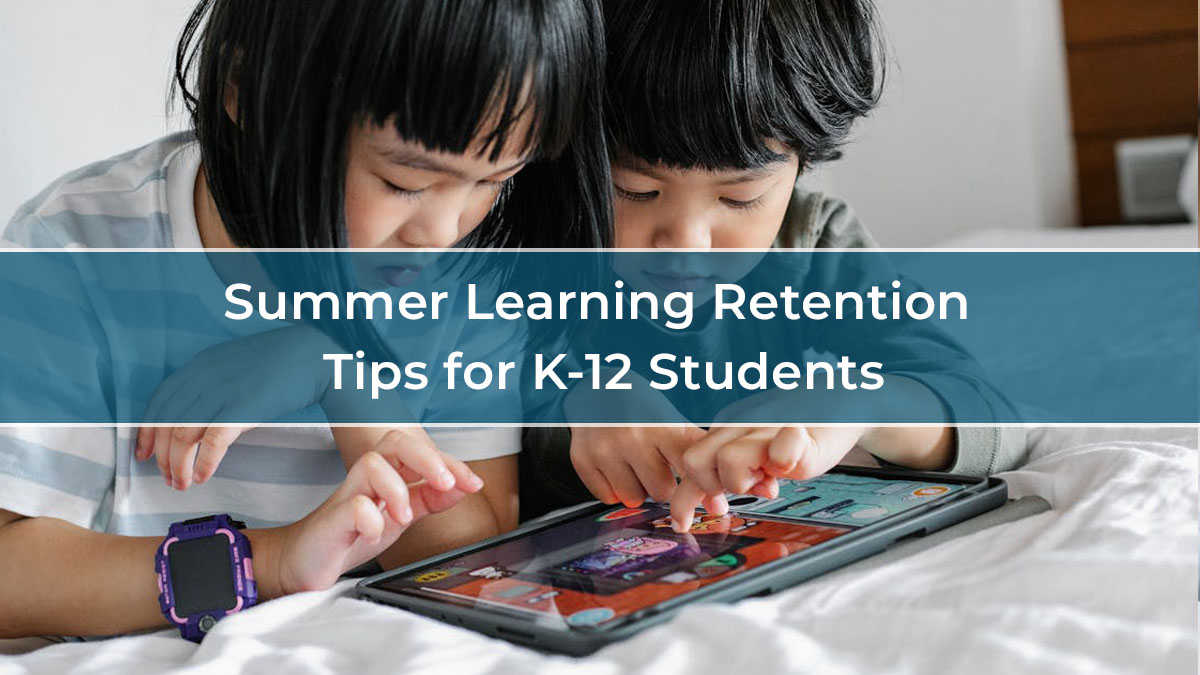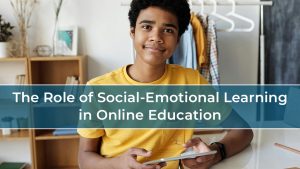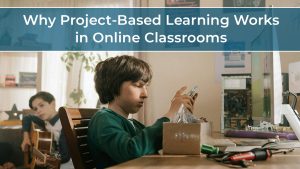Keeping minds active over the summer helps students build on their knowledge, stay confident, and start the new school year strong. Devoting time to learning each week can keep critical skills fresh in their memory and encourage curiosity (an enforcer of lifelong learning) while still having plenty of time for fun and relaxation!
- Read Everyday
- Make Learning Fun
- Connect Learning to Interests
- Integrate Learning Into Daily Activities
- Create a Light Routine
- Set S.M.A.R.T. Goals
- Build Connections
Read Everyday
Choosing fun picture books for beginning readers can help build a love for reading. Additionally, having a theme for each week can keep reading interesting (e.g., animals, space, dinosaurs, kindness, etc.). For older students, freedom of choice is crucial. Let them pick books that align with their interests, even graphic novels, fantasy, sports biographies, or sci-fi, because ownership builds motivation. Listening to an audiobook while following along with a physical copy can enhance the reading experience for all ages. Create a calm and comfortable reading area. Bonus: Start a summer book club with friends and/or family!
Make Learning Fun
Turn learning over the summer into an enjoyable experience using educational games and interactive online tools. Classic board games like Scrabble, Boggle, and Math Bingo help playfully build vocabulary and math skills. Wordscapes, crossword puzzles, brain teasers, and Sudoku can help strengthen mental skills. Flashcards and trivia apps are a great way to practice a variety of subjects, including history, vocabulary, and science. Educational apps and websites like Duolingo, National Geographic Kids, Code.org, Epic Reading, SplashLearn, ABCYA, PBS Kids, and Prodigy offer engaging, fun, and free learning that covers many subjects.
Bonus: Creating your family quiz night is an engaging way to reinforce learning while spending quality time together!
Connect Learning to Interests
Kids are more likely to stay engaged when learning is connected to their passions. Animal lovers might enjoy exploring zoology websites, reading about wildlife, or volunteering at a local animal shelter. Budding artists can dive into famous art movements and try recreating masterpieces in their style. Gamers can channel their interest into creativity by learning game design or coding through beginner-friendly platforms like Scratch. Dinosaur enthusiasts can explore paleontology through books, documentaries, or visits to natural history museums. Sports fans can practice math skills and critical thinking by calculating player statistics, analyzing game strategies, or exploring the history of their favorite teams. When learning is rooted in what excites kids, it becomes more meaningful, fun, and sticks.
Integrate Learning Into Daily Activities
Daily life offers countless opportunities to build academic skills in significant and hands-on ways. Cooking a simple meal can reinforce math skills like measurements, conversions, and fractions, while also strengthening the ability to follow multi-step directions. Exploring recipes from different cultures can spark curiosity about world history, geography, and traditions. A shopping trip to the grocery store is an eventful way to teach financial literacy skills like budgeting, comparing, estimating costs, and understanding value. If you’re going on a summer vacation or trip somewhere local or long-distance, encourage children to keep a travel journal to document their experiences, research destinations in advance, and calculate distances between locations. All of these help develop real-world math and decision-making abilities. Summer is also a perfect time to garden, introducing kids to life science concepts like life cycles, photosynthesis, and ecosystems. While maintaining a garden, they are learning about responsibility and environmental awareness. Incorporating learning into day-to-day tasks is memorable and helps them connect how knowledge applies beyond the classroom.
Create a Light Routine
Twenty to thirty minutes a day, three to four times a week, makes a worthwhile difference in maintaining and building academic skills. Keep the routine low-pressure, but consistent, so it feels more like enrichment than work. Set a regular “Brain Boost Time” for after breakfast, where children take time to focus on a specific skill. Mix academic practice with creative activities to balance it, promoting focus. For example, try a weekly rotation like Math Monday, Arts and Crafts Tuesday, and Science Wednesday. Using a visual chart with stickers or writing out the routine on a whiteboard or chalkboard each day is a fantastic way to track progress and celebrate the small wins of completing tasks. Giving your children a voice and choice when creating the routine will help them take charge of their learning, boosting confidence and pride for their efforts.
Set S.M.A.R.T. Goals
Set clear, SMART goals- Specific, Measurable, Achievable, Relevant, and Time-bound help guide summer learning. For writing, encourage journaling every other day, or completing a chapter of a story each week, or even writing letters to friends and family. In math, aim to complete a page in a workbook each week or thirty minutes a day on a free online learning platform or app. For science, try one new hands-on experiment each week, explore nature through hikes or walks, or visit a science or natural history museum once a month. Participating in a summer reading challenge at your local library can help keep reading skills sharp and the momentum going. Setting and accomplishing goals over the summer, like finishing a book series, learning twenty new vocabulary words, or mastering specific math skills like multiplication facts, will build confidence and a sense of accomplishment, among other essential life skills beyond academics.
Build Connections
Encouraging conversation and reflection with your kids is a powerful way to deepen their understanding and communication skills. Storytelling about past trips or family memories is another excellent way to build narrative skills and emotional connection. Watching age-appropriate documentaries or educational videos together (like on PBS Learning) can open the door to meaningful conversations about themes and various world issues that help children develop critical thinking and self-awareness. Puzzles, riddles, and logic games keep brains sharp. Encourage “why” and “how” questions in everyday life to promote critical thinking skills. Promote problem-solving skills by building Rube Goldberg machines (RubeGoldbergMachine) using household items, trying escape room kits, or virtual escape room games. Building these connections with your children can help keep them open to learning and aid retention.
Bonus: To spark reflection, add a question to your daily routine, such as “What is one thing you learned about today?”
Summer is a perfect time to nurture curiosity, build independence, and strengthen academic and social skills in engaging, worthwhile ways. Parents can help their children stay engaged and confident by weaving learning into daily life. Structure combined with freedom to explore can make an enormous difference. Above all, celebrate progress and enjoy the journey together!




